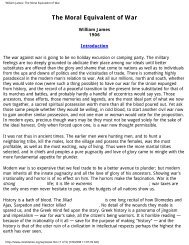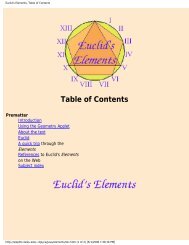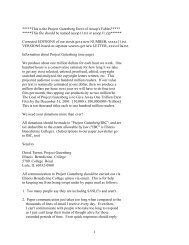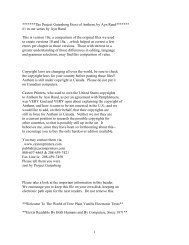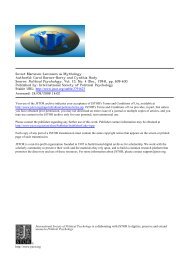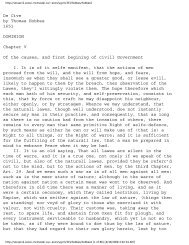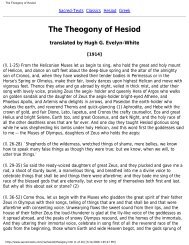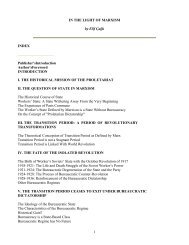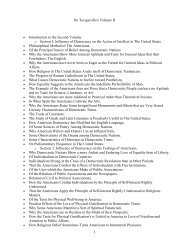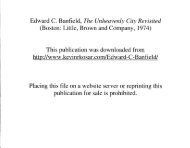Project Gutenberg Etext of The Large Catechism, by Martin Luther
Project Gutenberg Etext of The Large Catechism, by Martin Luther
Project Gutenberg Etext of The Large Catechism, by Martin Luther
Create successful ePaper yourself
Turn your PDF publications into a flip-book with our unique Google optimized e-Paper software.
saints. This would be more pleasing and acceptable to God than all<br />
monasticism and Carthusian sanctity.<br />
Behold, thus we might train our youth in a childlike way and playfully<br />
in the fear and honor <strong>of</strong> God, so that the First and Second Commandments<br />
might be well observed and in constant practice. <strong>The</strong>n some good might<br />
take root, spring up and bear fruit, and men grow up whom an entire<br />
land might relish and enjoy. Moreover, this would be the true way to<br />
bring Up children well as long as they can become trained with kindness<br />
and delight. For what must be enforced with rods and blows only will<br />
not develop into a good breed and at best they will remain godly under<br />
such treatment no longer than while the rod is upon their back.<br />
But this [manner <strong>of</strong> training] so spreads its roots in the heart that<br />
they fear God more than rods and clubs. This I say with such<br />
simplicity for the sake <strong>of</strong> the young, that it may penetrate their<br />
minds. For since we are preaching to children, we must also prattle<br />
with them. Thus we have prevented the abuse and have taught the right<br />
use <strong>of</strong> the divine name, which should consist not only in words, but<br />
also in practices and life, so that we may know that God is well<br />
pleased with this and will as richly reward it as He will terribly<br />
punish the abuse.<br />
<strong>The</strong> Third Commandment.<br />
Thou shalt sanctify the holy day.<br />
[Remember the Sabbath day to keep it holy.]<br />
<strong>The</strong> word holy day (Feiertag) is rendered from the Hebrew word Sabbath<br />
which properly signifies to rest, that is, to abstain from labor. Hence<br />
we are accustomed to say, Feierbend machen [that is, to cease working],<br />
or heiligen Abend geben [sanctify the Sabbath]. Now, in the Old<br />
Testament, God separated the seventh day, and appointed it for rest,<br />
and commanded that it should be regarded as holy above all others. As<br />
regards this external observance, this commandment was given to the<br />
Jews alone, that they should abstain from toilsome work, and rest, so<br />
that both man and beast might recuperate, and not be weakened <strong>by</strong><br />
unremitting labor. Although they afterwards restricted this too<br />
closely, and grossly abused it, so that they traduced and could not<br />
endure in Christ those works which they themselves were accustomed to<br />
do on that day, as we read in the Gospel just as though the commandment<br />
were fulfilled <strong>by</strong> doing no external [manual] work whatever, which,<br />
however, was not the meaning, but, as we shall hear, that they sanctify<br />
the holy day or day <strong>of</strong> rest.<br />
25



